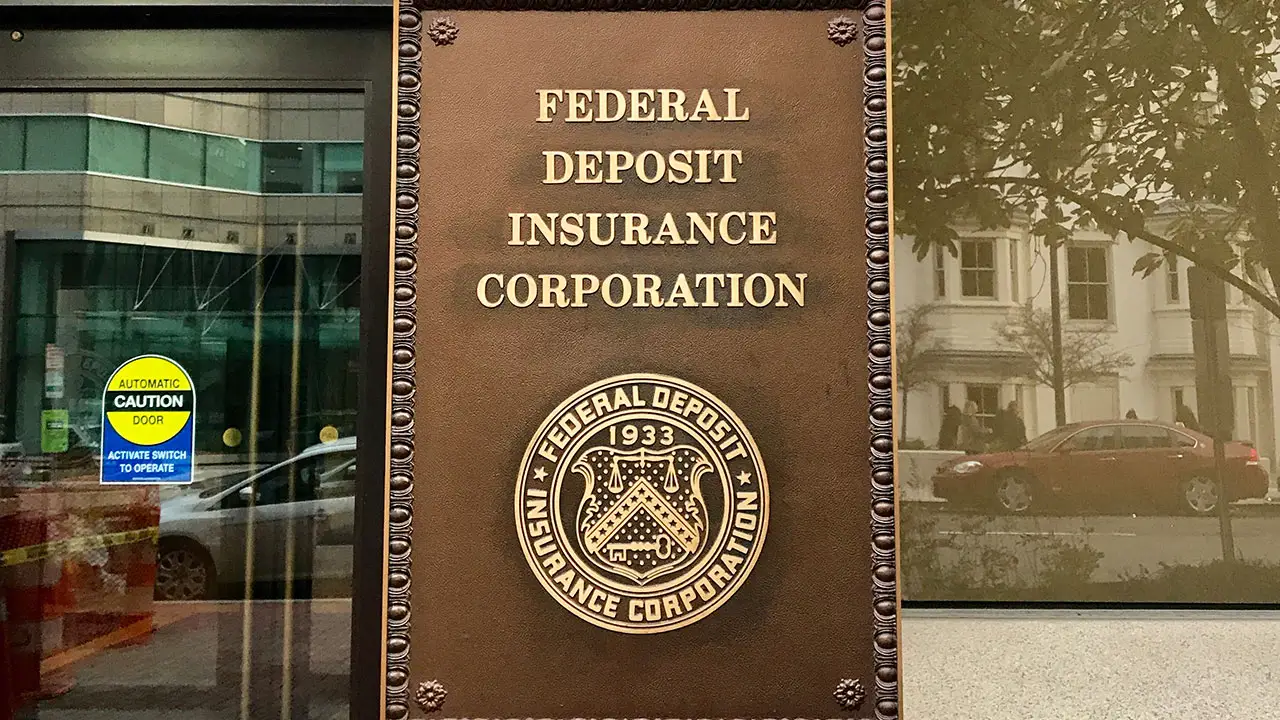Introduction
Welcome to the world of infinite banking whole life insurance, a unique financial strategy that offers a multitude of benefits and opportunities. If you have been searching for ways to take control of your finances, build wealth, and secure your future, then infinite banking might be the solution you’ve been seeking.
Infinite banking is a concept that has gained significant traction in recent years as individuals look for alternative methods to traditional banking and financial planning. It provides a framework for leveraging the power of whole life insurance to create a private banking system of your own.
By understanding the principles of infinite banking and how it works, you can gain greater control over your financial destiny, reduce dependence on external banks, and create a reliable source for financing your endeavors.
In this article, we will delve into the world of infinite banking and explore the fascinating realm of whole life insurance. We will uncover the features, benefits, and differences of this unique financial strategy and evaluate whether it is the right fit for your individual needs and goals.
So, whether you are a seasoned investor looking to diversify your portfolio or someone just starting their financial journey, the concept of infinite banking whole life insurance holds valuable insights and potential advantages that cannot be ignored. Let’s embark on this enlightening exploration and uncover the secrets of infinite banking.
What Is Infinite Banking?
Infinite banking is a financial strategy that revolves around the concept of utilizing whole life insurance policies to create your own personal banking system. It is a unique approach that allows individuals to take control of their financial destiny by becoming their own banker.
So, how does infinite banking work? At its core, it involves the cash value component of a whole life insurance policy. Rather than treating the policy as solely an insurance product, infinite banking recognizes it as a powerful financial tool that can be used to accumulate wealth and provide a source of financing.
When you participate in infinite banking, you fund a whole life insurance policy and build up its cash value over time. This cash value grows steadily, as part of the premiums paid into the policy accumulate interest and dividends. The policy becomes a living asset that you can access and utilize for various financial needs.
One of the key principles of infinite banking is utilizing policy loans. When you need to finance a purchase or investment, you can borrow against the cash value of your whole life insurance policy. This allows you to access funds quickly and easily, without the need for traditional bank loans and credit checks.
What sets infinite banking apart is the ability to repay the policy loans on your own terms. By repaying the loans with interest, you generate additional cash flow that goes back into your policy. This cycle of borrowing and repaying creates a self-sustaining banking system, where your policy becomes a source of financing for future endeavors.
Overall, infinite banking provides a way to maximize the benefits of whole life insurance policies. It offers an alternative to traditional banking and allows individuals to take control of their finances, build wealth, and create a legacy for future generations.
Now that we have a basic understanding of what infinite banking is, let’s delve deeper into how it works and explore the benefits it can provide.
How Does Infinite Banking Work?
Infinite banking operates on the principles of utilizing whole life insurance policies to create a personal banking system. Understanding the key components and mechanics of how it works can provide valuable insight into the power of this financial strategy.
Here’s a step-by-step breakdown of how infinite banking works:
- Acquire a Whole Life Insurance Policy: The first step in infinite banking is obtaining a whole life insurance policy. This policy will serve as the foundation for your personal banking system. It is important to work with trusted insurance professionals to find a policy that suits your specific needs and goals.
- Build Cash Value: As you pay premiums into your whole life insurance policy, a portion of each payment goes towards the cash value component. Over time, the cash value grows through interest and dividends. This cash value becomes the basis for your banking system.
- Borrow Against the Cash Value: Once the cash value has accumulated, you can borrow against it. These policy loans allow you to access funds for various purposes, such as investments, education, or debt consolidation. The loan terms are flexible, and you have the freedom to determine the repayment schedule.
- Repay the Loans: When you borrow against the cash value, it is important to repay the loans, preferably with interest. By repaying the loans, you replenish the cash value and maintain the growth of your policy. This repayment cycle keeps your banking system intact and ensures a continuous source of financing.
- Generate Cash Flow: With each loan repayment, you generate cash flow that goes back into your policy’s cash value. This cash flow can be used for future loans, additional investments, or even funding your retirement. It provides a means to generate wealth and maintain financial stability.
Overall, the process of infinite banking involves using the cash value of a whole life insurance policy to create a private banking system. It allows you to borrow against the cash value, repay the loans, and generate cash flow that grows your policy’s value over time.
Understanding the mechanics of infinite banking is crucial to effectively implement this strategy. By working closely with insurance professionals and financial advisors, you can optimize the benefits and leverage this unique financial tool to achieve your financial goals.
The Benefits of Infinite Banking
Infinite banking offers a range of benefits that set it apart from traditional banking and financial planning methods. Understanding these advantages can shed light on why many individuals choose to embrace this unique financial strategy. Let’s explore some of the key benefits of infinite banking:
- Financial Control and Independence: Infinite banking puts you in control of your financial destiny. By becoming your own banker, you have the power to make decisions about borrowing, investing, and saving on your terms. This provides a sense of independence and empowerment, allowing you to shape your financial future.
- Access to Quick and Flexible Financing: One of the primary benefits of infinite banking is the ability to access funds quickly and easily through policy loans. This eliminates the need to go through the traditional banking system, which often involves stringent credit checks and lengthy approval processes. With infinite banking, you have the flexibility to borrow against your policy’s cash value whenever the need arises.
- Potential for Tax Advantages: Whole life insurance policies offer potential tax advantages that can benefit infinite banking. The growth of the cash value is generally tax-deferred, which means you don’t have to pay taxes on the gains until you withdraw them or receive a dividend. Additionally, policy loans typically do not trigger taxable events. Consulting with a tax professional can help you fully understand and maximize these potential tax benefits.
- Protection and Security: Whole life insurance policies provide a level of financial protection and security for you and your loved ones. In the event of your passing, the death benefit can help provide for your family and cover expenses. This peace of mind allows you to confidently pursue your financial goals, knowing that your loved ones are protected.
- Potential for Asset Growth: Whole life insurance policies have the potential to accumulate cash value over time. This means that as you maintain and grow your policy, the cash value can increase, providing you with a growing asset that you can leverage for future financial needs. This wealth-building potential sets infinite banking apart from traditional savings or investment accounts.
The benefits of infinite banking extend beyond simply managing your finances. It offers a comprehensive financial strategy that empowers you to take control, access flexible financing, potentially enjoy tax advantages, and protect your financial well-being. By embracing infinite banking, you can create a path towards financial freedom, wealth accumulation, and a secure future.
Whole Life Insurance Explained
Whole life insurance is a type of permanent life insurance that provides lifelong coverage, as long as the premiums are paid. Unlike term life insurance, which covers a specific period, whole life insurance offers a combination of death benefit protection and a cash value component that accumulates over time.
Here’s a breakdown of how whole life insurance works:
- Premium Payments: With a whole life insurance policy, you pay regular premiums, typically on a monthly or annual basis. The premiums are set at a level that remains consistent throughout the life of the policy, ensuring stability and predictability.
- Death Benefit: Whole life insurance provides a death benefit that is paid out to your beneficiaries upon your passing. This benefit is generally income tax-free and can be used to cover funeral expenses, outstanding debts, and provide financial support for your loved ones.
- Cash Value Component: One of the unique features of whole life insurance is the cash value. A portion of each premium payment goes towards building the cash value, which grows over time. The cash value earns interest and may also receive dividends, depending on the insurance company’s performance.
- Borrowing Against the Cash Value: The accumulated cash value in a whole life insurance policy can be accessed through policy loans. These loans allow you to borrow against the cash value, typically at a lower interest rate than traditional bank loans. The loan amount can be used for various purposes, including financing investments, education, or other financial needs.
- Tax Advantages: Whole life insurance policies offer potential tax advantages. The cash value growth is generally tax-deferred, meaning you don’t pay taxes on the gains until you withdraw them. Additionally, policy loans are typically not considered taxable income.
- Guaranteed Premiums and Death Benefit: Whole life insurance provides the benefit of guaranteed premiums and a guaranteed death benefit. This means that as long as you continue to pay the premiums, the policy remains in force, and the death benefit is assured. This stability and predictability offer peace of mind and long-term financial security.
Whole life insurance is a comprehensive financial tool that offers both life insurance coverage and a cash value component. It provides a means to accumulate wealth, offer financial protection to loved ones, and access funds through policy loans. Whole life insurance is often used as the foundation for infinite banking, allowing individuals to leverage the cash value to create their own personal banking system.
Now that we have explored the mechanics of whole life insurance, let’s delve deeper into the features, benefits, and nuances of this unique financial product.
Features of Whole Life Insurance
Whole life insurance offers a range of features that make it an attractive option for individuals seeking long-term financial protection and wealth accumulation. Understanding these features can help you make informed decisions about whether whole life insurance is a suitable choice for your needs. Let’s explore some of the key features of whole life insurance:
- Lifetime Coverage: One of the primary features of whole life insurance is that it provides coverage for your entire life, as long as the premiums are paid. Unlike term life insurance, which expires after a specified period, whole life insurance ensures that your loved ones receive a death benefit whenever you pass away.
- Guaranteed Premiums: Whole life insurance comes with guaranteed premiums, meaning that the premiums you pay are fixed and will not increase over time. This provides stability and predictability, allowing you to plan your finances effectively.
- Cash Value Accumulation: A significant feature of whole life insurance is the cash value component. As you pay your premiums, a portion of the payment goes towards building the cash value. This cash value grows over time, accumulating interest and potentially receiving dividends from the insurance company’s performance.
- Tax-Deferred Growth: The cash value growth in a whole life insurance policy is generally tax-deferred. This means that you do not have to pay taxes on the gains until you withdraw them. This tax advantage can help you maximize the growth potential of your policy.
- Policy Loans: Whole life insurance policies allow you to access the accumulated cash value through policy loans. These loans provide a source of quick and flexible financing, typically at lower interest rates compared to traditional bank loans. You can use these policy loans for various purposes, such as investments, education, or other financial needs.
- Death Benefit: Whole life insurance guarantees a death benefit to your beneficiaries upon your passing. This benefit can help cover funeral expenses, outstanding debts, and provide financial support for your loved ones during a challenging time.
- Dividends: Some whole life insurance policies offer the potential to receive dividends. Dividends are typically declared by the insurance company based on their financial performance. These dividends can be used to enhance the cash value of your policy or be received as cash, depending on the policy and your preferences.
The features of whole life insurance make it a versatile financial tool that provides lifelong coverage, potential cash value growth, tax advantages, and the ability to access funds through policy loans. These features, combined with the stability and predictability of guaranteed premiums and a death benefit, make whole life insurance a popular choice for those seeking lifetime financial protection and wealth accumulation.
The Benefits of Whole Life Insurance
Whole life insurance offers a range of benefits that make it a valuable financial tool for individuals and families. From long-term financial protection to wealth accumulation, understanding these benefits can help you make informed decisions about incorporating whole life insurance into your financial strategy. Let’s explore some of the key benefits of whole life insurance:
- Lifetime Coverage: One of the main advantages of whole life insurance is that it provides lifelong coverage. As long as the premiums are paid, the policy remains in force and guarantees a death benefit to your beneficiaries upon your passing. This offers peace of mind knowing that your loved ones will be financially protected, regardless of when you pass away.
- Accumulation of Cash Value: Whole life insurance incorporates a cash value component that grows over time. Each premium payment contributes to the cash value, which accumulates interest and potentially receives dividends. This cash value acts as a savings component within the policy and can be accessed through policy loans or withdrawals for various financial needs.
- Tax Advantages: Whole life insurance offers potential tax advantages. The growth of the policy’s cash value is generally tax-deferred, meaning that you do not have to pay taxes on the gains until you withdraw them. Additionally, policy loans are typically not considered taxable income. Consulting with a tax professional can help you fully understand and maximize the potential tax benefits of whole life insurance.
- Stable and Predictable Premiums: With whole life insurance, you enjoy the benefit of guaranteed premiums. The premiums remain fixed throughout the life of the policy, providing stability and predictability in your financial planning. This allows you to budget effectively and ensures that the policy remains in force as long as the premiums are paid.
- Flexibility and Financial Freedom: Whole life insurance provides you with the flexibility to access the cash value through policy loans or withdrawals. This liquidity allows you to address various financial needs, such as funding educational expenses, supplementing retirement income, or seizing investment opportunities. Having access to these funds without the need for traditional bank loans can provide a sense of financial freedom and autonomy.
- Provision of Financial Legacy: Through the death benefit, whole life insurance enables you to leave a financial legacy for your loved ones. This benefit can be used to cover funeral expenses, pay off outstanding debts, or provide financial support to your beneficiaries. It ensures that your legacy continues beyond your lifetime and helps your loved ones navigate challenging times.
The benefits of whole life insurance extend beyond just life insurance coverage. It offers a way to accumulate wealth, access funds, enjoy potential tax advantages, and leave a lasting financial legacy for your loved ones. Whole life insurance serves as a valuable component of a comprehensive financial plan and can provide long-term financial security and peace of mind.
How Is Infinite Banking Different from Traditional Banking?
Infinite banking is a unique financial strategy that distinguishes itself from traditional banking in several key ways. Understanding these differences can help you recognize the advantages and opportunities that infinite banking offers. Let’s explore how infinite banking differs from traditional banking:
- Ownership and Control: In traditional banking, individuals deposit their money into a bank, effectively entrusting the bank to hold and manage their funds. With infinite banking, individuals become their own banker by utilizing whole life insurance policies. They have full ownership and control over the cash value within the policy, allowing them to make financial decisions on their terms.
- Financing Source: Traditional banking relies on external financial institutions for loans and financing. Individuals have to meet the bank’s criteria, go through credit checks, and often face stringent approval processes. In contrast, infinite banking uses policy loans, allowing individuals to access funds from their own accumulated cash value. This provides quick and flexible financing without the need for external banks or credit checks.
- Flexibility and Repayment: Traditional bank loans typically come with fixed repayment schedules and rigid terms. Borrowers must adhere to the bank’s requirements, which may restrict their financial flexibility. With infinite banking, individuals have control over the repayment terms of policy loans. They can tailor the repayment schedule to their needs and circumstances, allowing for more flexibility in managing their finances.
- Wealth Accumulation: Traditional banking primarily focuses on providing financial services, such as saving and checking accounts, and may offer limited opportunities for wealth accumulation. Infinite banking, on the other hand, leverages the cash value component of whole life insurance policies to build wealth over time. The accumulated cash value can be accessed, invested, and repaid, creating a cycle of wealth accumulation and financial growth.
- Tax Advantages: Traditional banking generally does not offer significant tax advantages. In contrast, whole life insurance policies, which form the basis for infinite banking, offer potential tax advantages. The cash value growth is typically tax-deferred, and policy loans are often not considered taxable income. These tax benefits can help individuals optimize their financial strategies and improve overall wealth accumulation.
- Legacy and Financial Security: Traditional banking primarily focuses on individual accounts and transactions. Infinite banking, in contrast, allows individuals to create a financial legacy for their loved ones. Whole life insurance policies provide a death benefit that can help cover expenses and provide financial support to beneficiaries. This enhances financial security and ensures a lasting legacy beyond an individual’s lifetime.
Infinite banking offers a paradigm shift in the way individuals approach banking and financial planning. It provides ownership, control, flexible financing options, opportunities for wealth accumulation, potential tax advantages, and the ability to leave a lasting financial legacy. By embracing infinite banking, individuals can take control of their financial destiny and unlock opportunities for long-term wealth growth and stability.
Is Infinite Banking Right for You?
While infinite banking offers a range of benefits and opportunities, it may not be the right financial strategy for everyone. It is essential to evaluate your financial goals, circumstances, and preferences to determine if infinite banking aligns with your needs. Consider the following factors when deciding if infinite banking is right for you:
- Financial Objectives: Reflect on your long-term financial objectives. Are you looking for a strategy that provides liquidity, wealth accumulation, and potential tax advantages? If you have goals that align with these aspects, infinite banking may be a suitable option.
- Comfort with Risk: Infinite banking leverages whole life insurance policies, which offer stable and predictable growth. However, it is still important to be comfortable with the inherent risks involved in any financial strategy. Evaluate your risk tolerance and understand that like any investment, there can be fluctuations in policy performance.
- Financial Discipline: Infinite banking requires discipline in managing your finances. You must commit to paying premiums consistently to build the cash value component and be responsible in repaying policy loans. Assess your ability to adhere to a disciplined financial approach before considering infinite banking.
- Interest in Learning: Infinite banking involves a deeper understanding of financial concepts and strategies. If you are willing to educate yourself on the principles and mechanics of infinite banking, it can provide you with the knowledge and skills to effectively implement this financial strategy.
- Insurance Needs: While infinite banking focuses on the cash value component of whole life insurance, it is essential to evaluate your insurance needs as well. Assess whether the death benefit provided by whole life insurance aligns with your family’s financial protection goals.
- Professional Guidance: Engaging with trusted financial professionals experienced in infinite banking is crucial. They can help you navigate the complexities, customize the strategy to your unique situation, and provide ongoing support in managing your policy and financial decisions.
Ultimately, the decision to pursue infinite banking depends on your individual circumstances and goals. It is advisable to consult with financial professionals who specialize in infinite banking to evaluate whether this strategy aligns with your financial aspirations and risk tolerance.
Remember, financial strategies are not one-size-fits-all, and what works for one person may not work for another. Carefully assess the benefits, risks, and your own financial situation before deciding if infinite banking is the right path for you.
Conclusion
Infinite banking whole life insurance offers a unique and powerful financial strategy that provides individuals with greater control, flexibility, and wealth-building opportunities. By leveraging the cash value component of whole life insurance policies, infinite banking allows individuals to become their own banker, accessing funds through policy loans, and enjoying potential tax advantages.
Throughout this article, we have explored what infinite banking is, how it works, the benefits of infinite banking, the features of whole life insurance, and how infinite banking differs from traditional banking. We have also discussed the suitability of infinite banking for individuals and the importance of professional guidance.
Is infinite banking right for you? The answer depends on your financial goals, risk tolerance, financial discipline, and interest in learning. It is crucial to evaluate your unique circumstances and consult with experienced financial professionals skilled in infinite banking to make an informed decision.
It is important to remember that financial strategies are not one-size-fits-all, and what works for one person may not work for another. Infinite banking presents advantages such as financial control, flexibility in financing, potential tax benefits, and the ability to create a lasting financial legacy. However, it also requires careful consideration and commitment to effectively manage the strategy.
If you are seeking alternatives to traditional banking and are interested in building wealth, enhancing financial security, and maximizing the benefits of whole life insurance, then infinite banking may hold immense potential for you.
Now that you have a better understanding of infinite banking whole life insurance, take the time to evaluate your financial goals, consult with professionals, and make an informed decision about whether to embrace this unique financial strategy. With the right knowledge and guidance, infinite banking can pave the way towards a brighter financial future and empower you to achieve long-term financial stability and success.

























